Published Works: Urban Melting Pots, Best Value Cruises, Terrific Tokyo
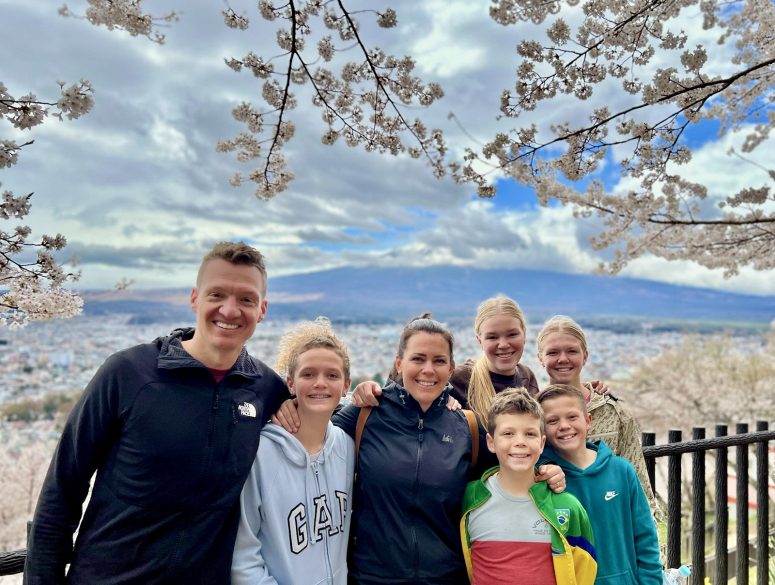
Here are my latest travel dispatches for Paste Magazine and Lonely Planet:
I run this joint. Don’t know where to start? Let me show you around:

Here are my latest travel dispatches for Paste Magazine and Lonely Planet:
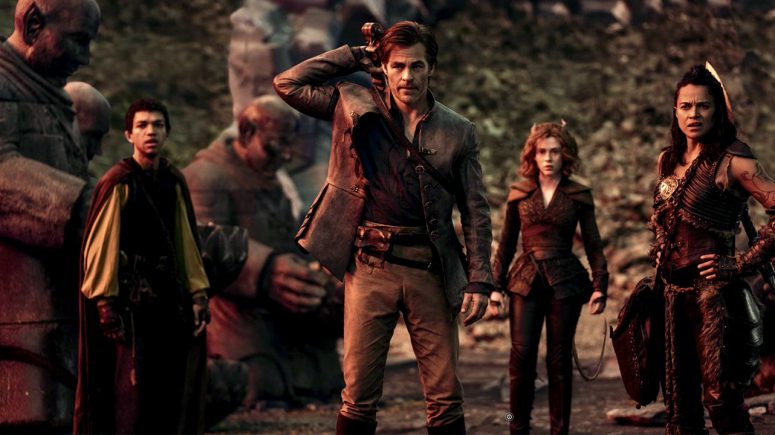
The cinematic offspring of Princess Bride plus Guardians of the Galaxy with a hint of Bill & Ted’s Excellent Adventure. Bonus points for the Tame Impala credit song. I highly recommend it. ★★★★☆

My daughter recently asked how someone gets rich. Before I share my answer, it’s important to distinguish rich from wealthy (and upper middle class).
Rich is having a high income, typically north of $300,000 a year in America, regardless of debt. Wealthy is possessing a large amount of money, property, assets, savings, and/or investments relative to debt (aka “high net worth”).
For reference, the lower economic class makes less than $50,000 a year; middle class between $50-150k, and upper middle class between $150-300k. Super rich (just 1% of Americans) make half a million a year or more.
Depending on how fast you spend money, it’s possible to be “rich but broke.” It’s also possible to become wealthy over time without ever being technically rich in any given year. And depending on your lifestyle, where you live, and your family status, it’s possible to live rich and/or approach wealth without hitting those exact numbers.
That said, there are five proven ways to make a lot of money. They are as follows: Continue reading…
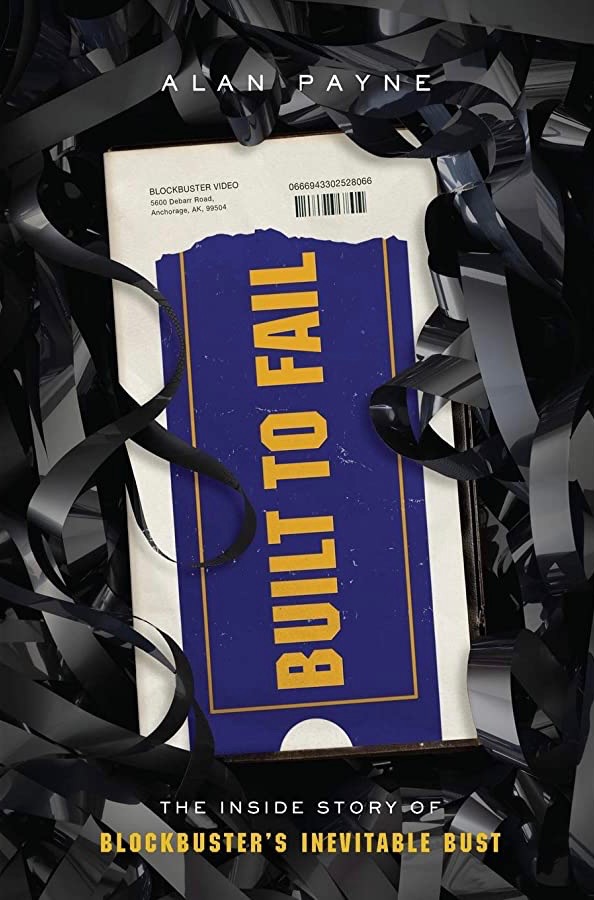
Insightful book by franchise owner Alan Payne that argues Netflix wasn’t the problem since Blockbuster was self-inflicting wounds a full decade before streaming took over. I enjoyed the book and suspect those who lived through it would too. ★★★★☆
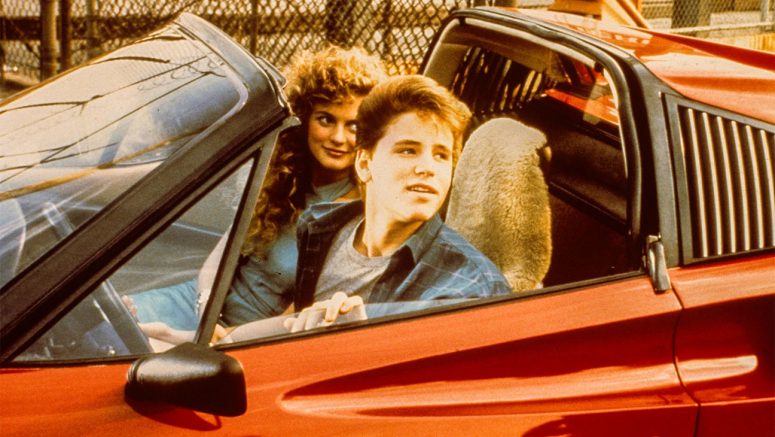
To young, developing minds, social media can be just as harmful as underage drinking, driving, and firearm use. At least that’s what many experts told me while researching Log Off: How to Stay Connected after Disconnecting. Having witnessed the declining mental health and fortitude of children in recent years, I believe it.
But it’s not just children that are suffering and social media isn’t the only unregulated problem. Smartphone, internet, and online gaming use in general can be just as toxic, especially for children and upwards of 50% of American adults (myself included). Continue reading…
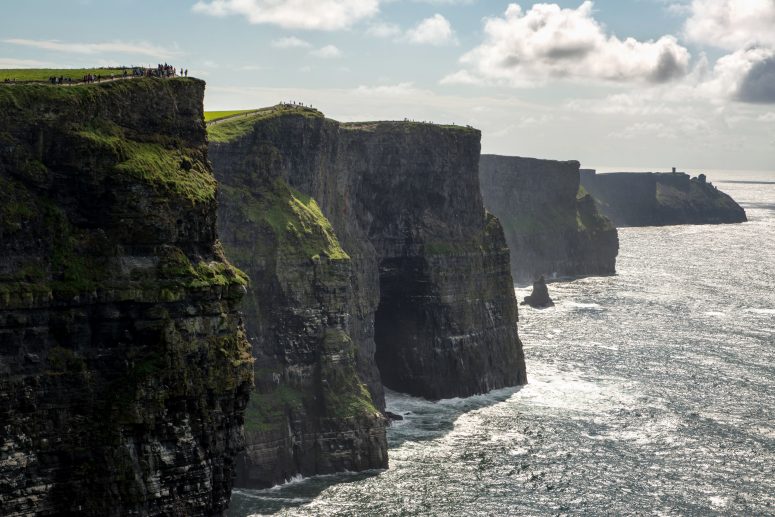
Green—Ireland’s been doing it since well before it was a buzzword. And not just for one day each spring in celebration of its patron saint. “In Ireland, everyday is bathed in green,” asserts the country’s visitor’s bureau. That’s no exaggeration. Thanks to heavy precipitation and its mild climate (caused by warming ocean currents), The Emerald Isle is a scientific fact.
It’s also a popular place to visit. When considering a trip to this photogenic and evergreen beauty, forget luck and consider these worthy itinerary entries. Continue reading…
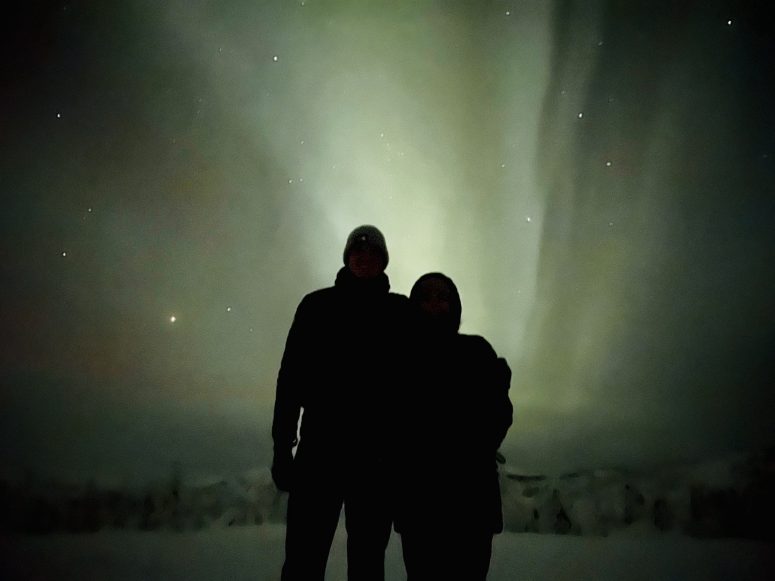
Courtesy Blake Snow
My latest for Paste Magazine: “You need three primary ingredients to really see the Northern Lights: Proximity to the North Pole, maximum darkness, and clear skies. Fairbanks, Alaska has all three and more, making it one of the best places in America (if not world) to see the elusive Aurora Borealis.
“But Fairbanks features a lot more than just shimmering ribbons of light swathing across the northern night sky. On a recent bucket list trip with my wife, I braved the coldest city in America to delight in dog sledding, hot springing, arctic snowmobiling, and even reindeer walking.
“Before following suit, here’s what you need to know.” Continue reading…

Courtesy Shutterstock
I recently watched two documentaries that left me shrugging.
The first was a an hour-long report on the lack of truck drivers. Basically the filmmakers openly wondered about how to correct the truck driver shortage. They never acknowledged that everyone’s packages are still being delivered. And they offered no answers to the proposed problem, even the dead-simple one that capitalism is really good at solving (i.e. paying more) for talent shortages.
“This isn’t my and/or society’s problem,” I remarked to my wife afterwards. It’s Amazon’s, Walmart’s, and anyone else who heavily depends on shipping. Let them figure it out. With trillions of dollars at stake, they’re highly motivated to do so. No need to worry. Next!
The second documentary openly wondered about what to do about rising temperatures at our Southern Border, which are sadly killing a growing number of immigrants. While I appreciate the documentary’s concern, the filmmakers implied this was society’s problem to fix. And not by reversing climate change, mind you. Rather, the government should do something to help migrants withstand hotter temperatures as they sneak into America, the documentary asserted.
This too, left me shrugging. Maybe just put up signs warning people who exercise free will of the heightened temperature risks and call it a day? Or trust that migrants will increasingly make the attempt during cooler winter temperatures. They have brains too, ya know.
I don’t mean to be insensitive, but the level of distrust for the systems that are actually making the world a better place surprise me.
The world is getting better. Maybe not as fast as you like, but it’s getting better. And there’s no evidence to suggest that trusting in the system actually hinders progress.
You can have both trust and progress. The two aren’t mutually exclusive. In fact, humans are very good at building systems of trust that work more than they fail… while making progress. Trust in that.
Next!
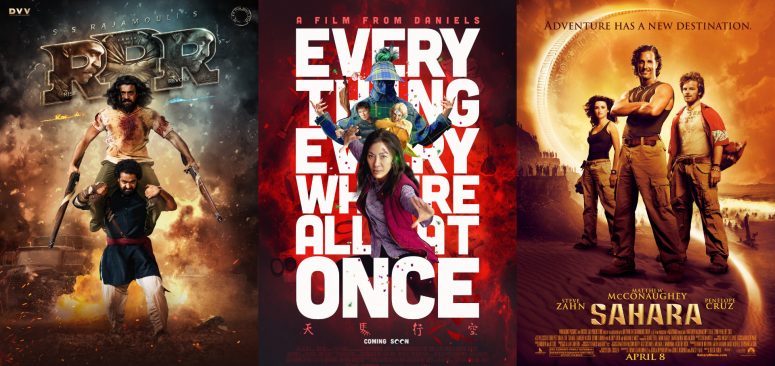
After rewatching Indiana Jones with family recently, my wife and I screened a handful of other adventure movies we’d never seen before.
Two are Oscar nominees and absolutely crazy fun. One (RRR) breaks into random music videos at times and the other (Everything Everywhere) made me cry by the end. The other is 20 years old and nearly as entertaining as Top Gun 2. I award all three 4 out of 5 stars and highly recommend them.
As for upcoming movies, I have the following on my calendar: 65, Dungeons & Dragons, Air, Guardian 3, Indiana Jones 5, Mission Impossible 8, and maybe Oppenheimer. It’s finally shaping up to be a year where I’m looking forward to more than just a couple of new movies.
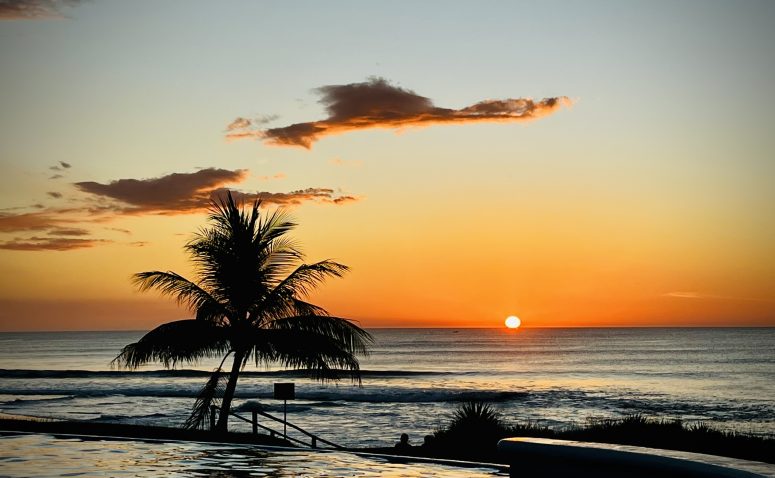
Courtesy Blake Snow
My latest for Paste: “Sometimes a country is more defined by what it doesn’t have than what it does. Nicaragua is one of those countries.
“While it doesn’t have the shiny amenities, rave reputation, and tourism machine needed to attract a high volume of visitors, Nicaragua also doesn’t have the crowds, beaten paths, and routine experiences you’ll increasingly find elsewhere. Instead, it is refreshingly undeveloped. Because of this, Nicaragua is notably more affordable when compared to other Central American hot spots (including neighboring Costa Rica, which it definitely resembles).“
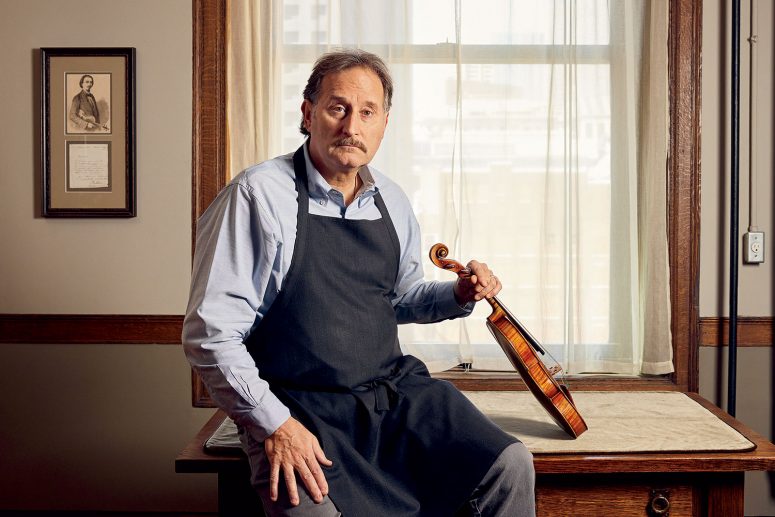
Courtesy Chicago Magazine
We wouldn’t have music in the world if it weren’t for the master wood makers and instrument caretakers like John Becker, whose world renowned and million dollar restorations were recently profiled by Chicago Magazine: “Making that guitar had a big impact on me. I didn’t grow up in a musical family, but I realized I wanted to help musicians. I get that same excitement working with classical violinists.” Love it.
Until I get around to writing a condensed, more interesting story, here’s a chronology of mostly personal events:
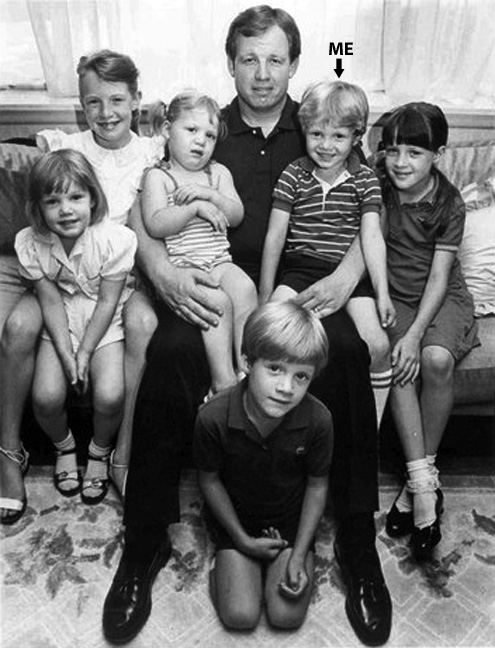
1979. Born in Moscow, Idaho to goodly parents named Brent and Cathy Snow as the fourth child of six and second son in the family. Moved to Oklahoma one month later.
1985. Started my formal education at Westwood Elementary School in Stillwater, Oklahoma while my father taught psychology at Oklahoma State University (Go Pokes!). Said formal schooling would last me 17 consecutive years (gulp) across three state programs.
1986. Exposed to my first home computer and modern video game console after my mother bought a colored IBM PCjr and some neighborhood friends scored a Nintendo Entertainment System. The love affair with technology, personal computers, and video games had begun.
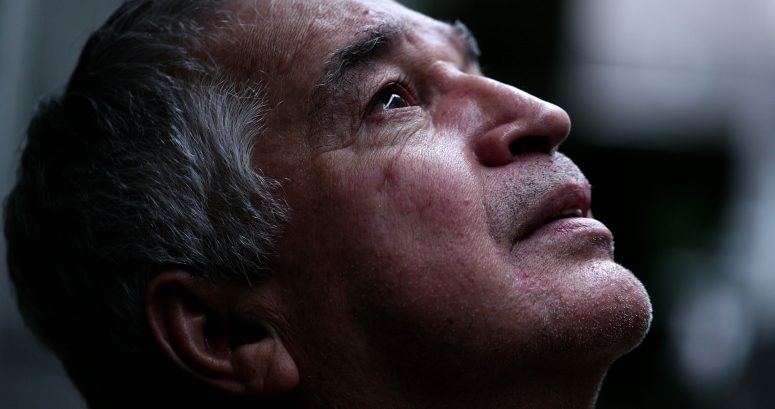
Courtesy Shutterstock
I often catch my breath while seeing an otherworldly landscape or snow covered mountain, hearing moving music, or witnessing a simple act of kindness. I love that feeling, which researcher Dacher Keltner describes as “Awe—the feeling of being in the presence of something vast that transcends your understanding of the world.”
Keltner and his team at Berkeley have studied awe for a long time. What they found is this: Not only is awe a compelling feeling for romantics like me, it makes us happier, healthier, and humbler in the following ways: Continue reading…

Courtesy Shutterstock
I was recently talking to an ultra-liberal friend who admitted that today is a better time to be born than any other time in history, regardless of race, gender, and let’s say 99% of nationalities. While the world is far from perfect, it is a better place for the greatest number of people. That includes higher life expectancies, education, and literacy rates, and remarkably less death, disease, poverty, war, crime, dictators, and injustices.
Nevertheless, this same friend expressed fear that acknowledging said progress might encourage conservative society to stop making progress. I argued that most conservatives have made social progress, albeit slower than liberals, since forever (especially since the industrial revelation). Furthermore, there’s no evidence suggesting that conservatives will suddenly stop once a tolerable threshold of social equality has been reached. And yet I suspect this liberal fear exists in more than just my friend.
I don’t know the exact number, but I do know many outspoken liberals feel the need to qualify any acceptant that the world has gotten better. They almost always couch it with, “Yeah, but we still have a long way to go!” I sense many of them share this fear that by acknowledging our social progress, we’ll suddenly stop perfecting the other flawed areas of social inequality.
To get to the bottom of what I believe is an unfounded fear, I interviewed several people on the subject. This is what I learned. Continue reading…

Courtesy Unsplash
My latest for Paste: “How might travel change this year? Where are people going this year? And how can you save a buck on your next trip while moving about the planet?
“To find out, the folks at Expedia, the world’s largest travel company, surveyed 2000 people and paired their responses with the most recent booking data. Although not a foolproof way to predict the future, this approach offers an inside look at the purchasing behavior and changing tastes of travelers.
“According to the data, this is what we’re in for this year.” Continue reading…
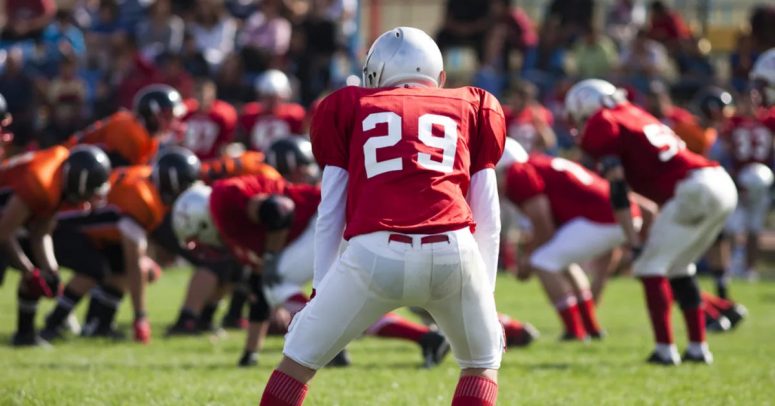
Courtesy Shutterstock
Much of my family enjoys watching football with me in the fall and winter. It’s the most TV we watch all year.
Between both college and pro, we’ve enjoyed a lot of exciting games this year. But one in particular stands out. And not because of the result.
Midway through the season, Washington (where my wife is from) nearly pulled off an incredible upset of a highly ranked team. It was back and forth football for a full four quarters. Really great stuff.
On the very last play, however, Washington lost.
That’s not the story that matters, though. A few moments after the game ended, my son Jack turned to his mother and I and said, “That was a close game. Good job to the team that won.”
I was so proud of him for not confusing loyalty with entertainment. Better yet, he’s already beginning to understand what it means to be magnanimous, an elusive trait that makes the world a better place.
I was proud of the example he set and hope to demonstrate the same attitude whenever my favorite team loses.
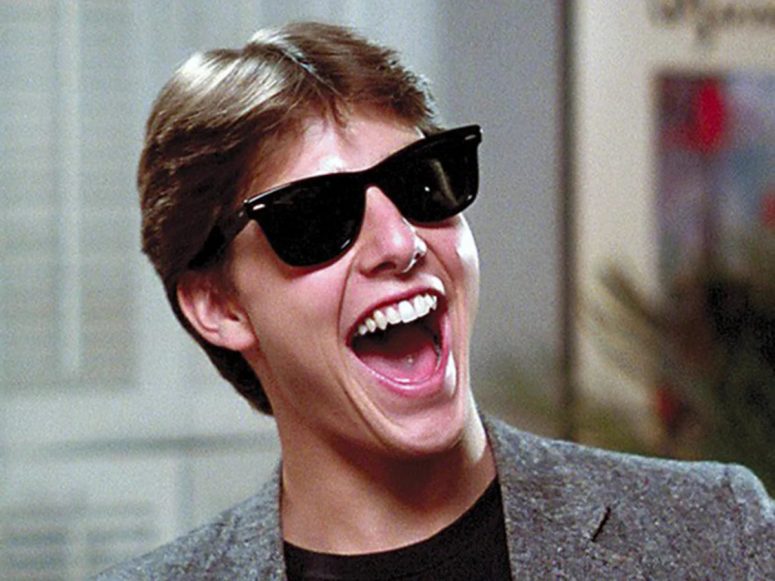
Courtesy Warner Bros.
I’ve been writing full-time on a professional basis for almost two decades. In that time, I’ve written two books, hundreds or reports, and thousands of articles.
To publish that amount of work, I’ve also committed tens of thousands of mistakes. Maybe more. My last book alone contained thousands of errors after my editor bled all over it. On top of that, I was born with bad diction, and am subjected to nasty hate mail after some of my mistakes.
Why am I telling you this?
Because in both life and writing, mistakes are an everyday thing. In fact, the latter happen every minute. That’s because language and communication are incredibly complex, even for professionals like me who get paid to write fewer mistakes than you do. The sooner you accept, if not embrace, mistakes, the better writer you’ll be. Continue reading…

Courtesy Shutterstock
I spent a few hours recently researching ways to improve my enjoyment of “home sweet home.” This is what I came up with, according to the latest research: Continue reading…
I loved these recent profile of Google Reviews written by Will McCarthy and hope you do too.
These were my favorite sentences: “Google Reviews is like having millions of friends around the world who can give you a reliable recommendation on literally anything… I have lived, these reviews say, I have fought and struggled and cried in the face of beauty. I have felt pain, and I have been to Taco Bell and it was only average.”
See also: One-star reviews of National Parks
 Pay no mind to what some old people, many talking heads, and all fear-mongerers say. The world is NOT getting worse. It’s getting better, even under controversial and sometimes divisive climates.
Pay no mind to what some old people, many talking heads, and all fear-mongerers say. The world is NOT getting worse. It’s getting better, even under controversial and sometimes divisive climates.
These recent stats compiled by USA Today, Business Insider, Factfulness, and Vox Media offer irrefutable proof. For example:
The glass isn’t half empty, readers. It’s measurable fuller than ever before. Although the world is still imperfect, it’s on the way up more often than not.
First published to blakesnow.com in 2018

My new single, Fancy Hotel, released today on all major music stores: Spotify, Apple, Amazon, YouTube Music, YouTube, and more. It’s the lead single from my forthcoming third album, out later this year.
I wrote the song in the same hotel room I photographed for the cover art, while on assignment for Paste Magazine in Spain. It’s one of the darkest songs I’ve ever written. But since my optimistic self was the one writing it, the chorus is actually super uplifting. So I’m proud of the mixed feelings it captures, something all of us experience in our own headspace.
I’m also proud of the cover art, which is equally dark. But light is still beaming through the windows. Because there’s always hope. Lyrics after the break. Continue reading…
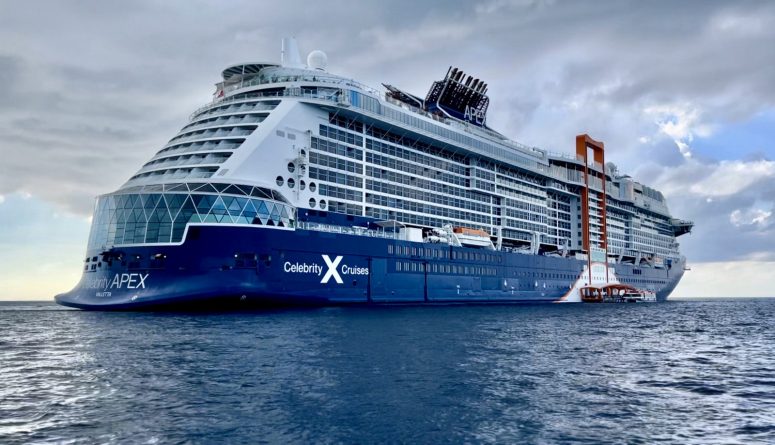
My latest for Paste Magazine: “It took a minute, but cruising is back. Although most liners halted their sailings over the last couple of years, all ships are now full steam ahead.
“The same is true of Celebrity Apex, the best-rated, recently launched ship from the ocean’s top-rated cruise line, according to passenger reviews. After being christened just before the pandemic, Apex basically sat unused for the better part of two years, before settling into its current Caribbean itinerary last fall.
“The week before Christmas, my family boarded Apex in fantastic Fort Lauderdale for a week of all-you-can-eat fun, island hopping (e.g. Key West, Cozumel, Grand Cayman), and sunny relaxation. Here’s what we liked most about the ship.”
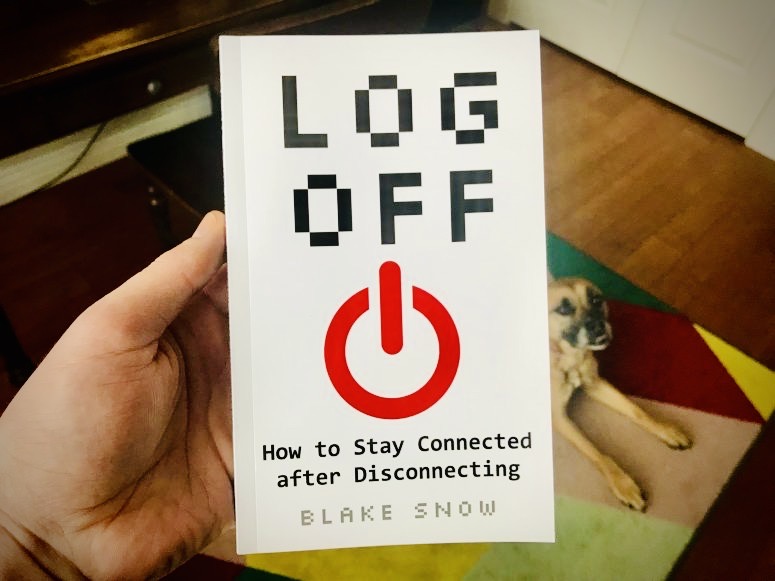
It’s been half a decade since I published my first book, Log Off: How to Stay Connected after Disconnecting. It sounds melodramatic, but that little book changed my life. I owe so much to the stories and research contained inside, as well as the rippling effect it created after publication.
Five years later, here are five things I learned after publishing the book: Continue reading…

Courtesy Shutterstock
Short answer: Figure out what’s abnormally expensive, and then don’t buy that thing.
Long answer: Think creatively about how to still satisfy your wants and or needs in a different way. After the price of brisket recently skyrocketed, for instance, I slow-cooked a roast instead and it turned out pretty good! I’d say maybe 80% like real brisket and would eat it again. Plus, it was a lot more palatable to pay $15 for a hunk of BBQ instead of $55.
My wife and I do the same with travel. We try to book during low season when prices are less. This requires a flexible schedule or some additional sacrifices in time, but it’s a wonderful way to save on airfare, hotels, and tours.
In short, you gotta follow the “SUCC” framework if you wanna beat inflation:
Lastly, if you really love something and can still afford it, don’t overthink it. Just buy it.
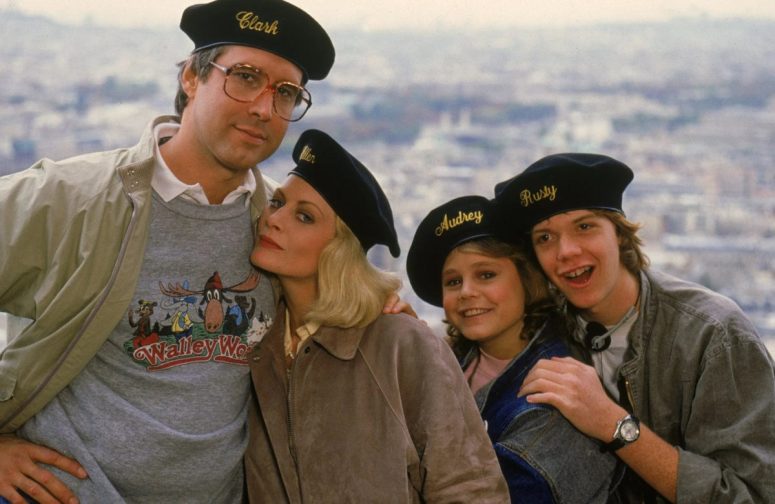
My latest for Paste: “Since yearly records first began in the 1960s, no other continent welcomes more traveling Americans than Europe. Roughly half the size of the US with almost an equal number of countries as we have states, Europe is a convenient, safe, and diverse way to expose yourself to a lot of foreign cultures (and languages) in a short amount of time.
Thanks to a strong dollar, Europe is also a lot more affordable now than it’s traditionally been. As with all continents, however, Europe does a lot of things differently than we do here at home. Whether you’ve visited before or are planning your first transatlantic visit this year, here are some of the bigger dissimilarities you need to understand.”

Courtesy Adobe Stock
What characteristics do creative people cultivate that others do not? In my own life as a writer, author, and musician, these five characteristics have served me well: Continue reading…
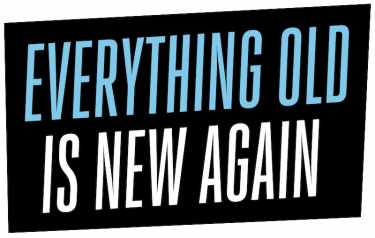
Many years ago, I read a mind-bending book by Bill Bryson. But I did so a full decade after the best-selling author first wrote it. Surprisingly, I later learned that the book didn’t get as much coverage as his earlier travel books. “I gotta share this,” I said to myself. So I reached out to several newspaper editors with whom I worked with—none of which had covered the book—about doing a retrospective review. Their collective reply, “Sorry, we don’t review old books.”
In other words, modern journalism only touches recent “news,” however you define that. In art’s case, that usually means weeks or months, and typically never more than a few months old. Journalism, you see, is built on helping readers process the recent world—in many cases without context to our past. It’s almost as if they’re saying, “You’re on your own for anything good that’s older than a year, but we’ll help you find the good stuff coming out of the firehose right now.”
That’s negligent at best, narrow-minded at worst.
As journalists, how can we inform society if we fail to critique some of our “greatest hits” from the past? The answer is we can’t. While recent happenings have always been the focus of “news,” it shouldn’t come at the expense of celebrating, elevating, or criticizing some of humanity’s most viral ideas and works, especially for newer generations who weren’t around when that once important news dropped off the feed.
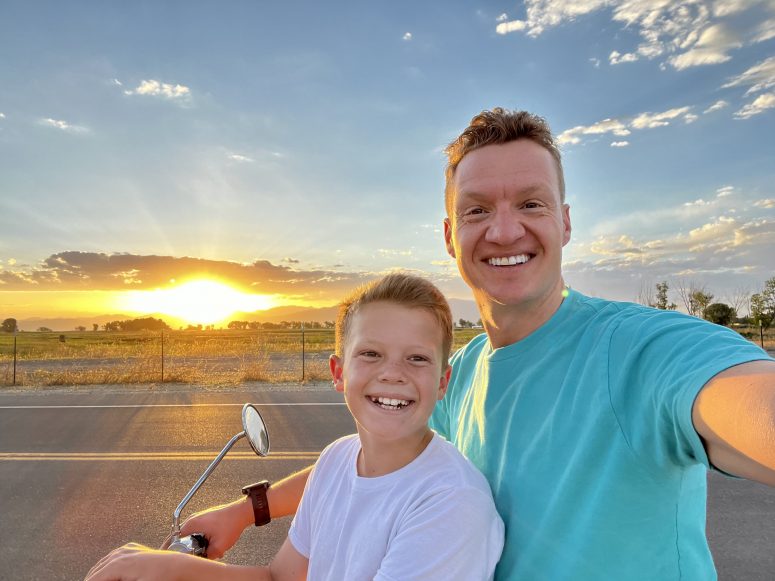
Kids say the darnedest things. But their mental fortitude is even more impressive.
After recently losing his first basketball game by a whopping 12 buckets, my son Max (pictured) turned to one of his teammates and said, “It’s okay—we’re still cool.”
His mother and I laughed, of course. But it was obvious this friend was familiar with the sentiment. We asked Max about it later. He said he and his friends often say this to each other whenever they screw up.
I love this mentality. We all make mistakes. But that doesn’t diminish our value, Max says. Brilliant!
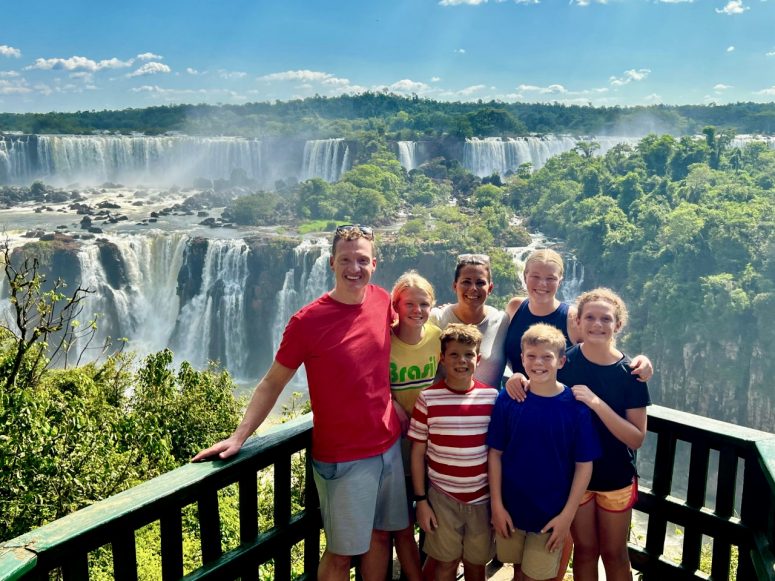
My latest for Paste Magazine:
It doesn’t make any sense. I’m looking at the most beautiful city I’ve ever visited on six different continents. That city, Rio de Janeiro, is a masterpiece of God, Mother Nature, or whatever force created it. Its lush mountains and iconic beaches are the crown jewel of Brazil, a country that includes two “Wonders of the World,” the world’s largest rainforest, and more natural and cultural diversity than any other country in Latin America.
Despite this, Brazil doesn’t even crack the list of the top 50 most-visited countries in the world. Continue reading…
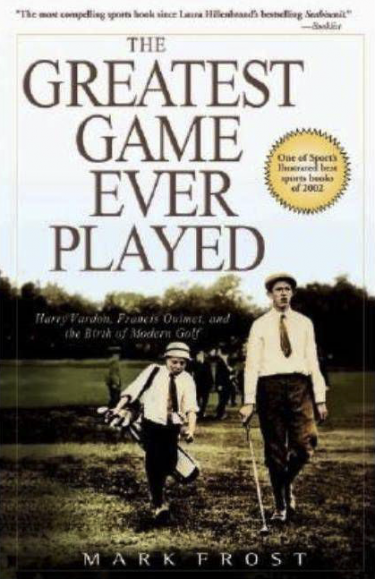 I recently finished The Greatest Game Ever Played by Mark Frost. It tells the inspiring true story of Francis Ouimet and his endearing, 10-year old caddie winning the US Open in 1913 as an amateur and first American-born player to do so. It was a wonderful account and inspiring to boot, especially since all of us are amateurs in most areas of our lives. If Ouimet can do it, any of us can!
I recently finished The Greatest Game Ever Played by Mark Frost. It tells the inspiring true story of Francis Ouimet and his endearing, 10-year old caddie winning the US Open in 1913 as an amateur and first American-born player to do so. It was a wonderful account and inspiring to boot, especially since all of us are amateurs in most areas of our lives. If Ouimet can do it, any of us can!
Rating: ★★★★☆ These were my favorite passages: Continue reading…
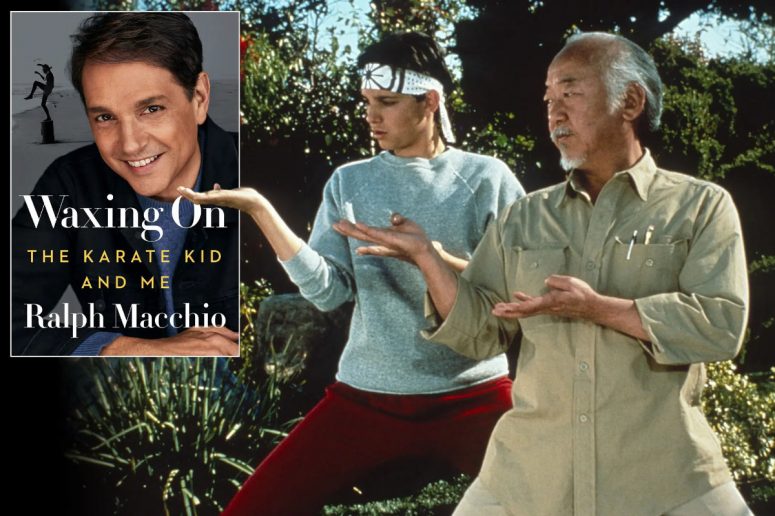
I recently finished Waxing On by Ralph Macchio. It’s about his celebrity and often stuck-in-time life as the Karate Kid. As a huge fan of the original movies, I thought it was a fascinating and entertaining read about how it all came together, and what effect the typecasted role continues to have on Macchio’s life.
Rating: ★★★★☆ These were my favorite passages: Continue reading…

My latest for Lonely Planet and Paste:
Thanks for reading.

I’m currently working on my third album to be released sometime next year. And I was recently reminded that you can’t force creativity.
For example, I visited Madrid this fall for work. On the first day, I was feeling jet lagged, isolated, and especially restless. So much so that I wrote two really great songs from that emotional state. They just came out of me.
Afterwords I decided, “Maybe I should always write songs when I travel.”
The next month, I visited Mexico City, another Spanish speaking capital. “This is going to be good,” I excitedly told myself. I even bought a new travel ukulele and blocked off some time during my trip to dedicate to songwriting.
What happened? Absolutely nothing. It was a total bust. Not a single idea or spark came. “Well that was a waste,” I told myself.
That’s not entirely true. It never hurts to try. But the experience reminded me that emotional highs and lows are always the best conditions to create in.
If we want to create more, we must put our psyches in unique or new situations, and then let our emotions tell the story. I’m in awe of how effective strong emotions are when creating.

Courtesy Shutterstock
I sometimes yell at my immediate family members when arguments arise. I’m not proud of it.
I’ve talked with other anger “patients” that have road rage or easily yell at strangers or people in public, but never at their own family—something I don’t identify with.
Granted, I believe 99% of outbursts are wrong, regardless of who they are directed at. But I feel extra guilty for having better manners with strangers and fellow drivers than the people I love most.
Because of that, 11 years ago I admitted myself to anger therapy. It was a life-changing experience that didn’t fix the problem, but it definitely improved it and gave me great coping mechanisms.
This January, I had an epiphany. “I wonder what would happen to my temper if I willingly removed swear words from my vocabulary?” To find out, that’s exactly what I did this year.
Here’s how it went. Continue reading…

When it comes to great writing, practice will only get you half of the way. To really gain an understanding of how language currently works (and how it fails), we must read often.
That’s admittedly hard for many people. One in four of you reading this didn’t read a single book last year, according to Pew Research. And the 75% who did only reported reading “at least” one book in the last 12 months, so it’s unclear what the average number of read books per year is.
In my own life, I have friends that read over 100 books a year. And I have friends that read no books. I like both kinds, but I know the former are better writers (and often communicators) than the latter. Personally, I read a dozen books per year, in addition to a similar number of long-form articles each week (via Longreads and Digg).
Wherever you are, sometimes we forget the impact that regular reading has on effective writing. This is your reminder. As we head into the holidays and new year, I challenge each of you to read more often. If you need a recommendation, read my recently reviewed books, my own two books, and/or subscribe to the above. Not only will this make you smarter, it will make you a better writer.
Need help writing anything next year? If so, I know a really good guy. Thanks for reading.

Snow Family
My wife—hi, hot stuff!—bought me ballroom dance lessons for Christmas. Even though I can cut rug freestyle, I was really excited about taking formal instruction. After finishing the eight week course last week, I am pleased to report it did not disappoint.
I fully expected to learn some new moves, but I didn’t expect the class to broaden my worldview and deepen my appreciation for music. But it did. Here’s what ballroom dance lessons taught me: Continue reading…
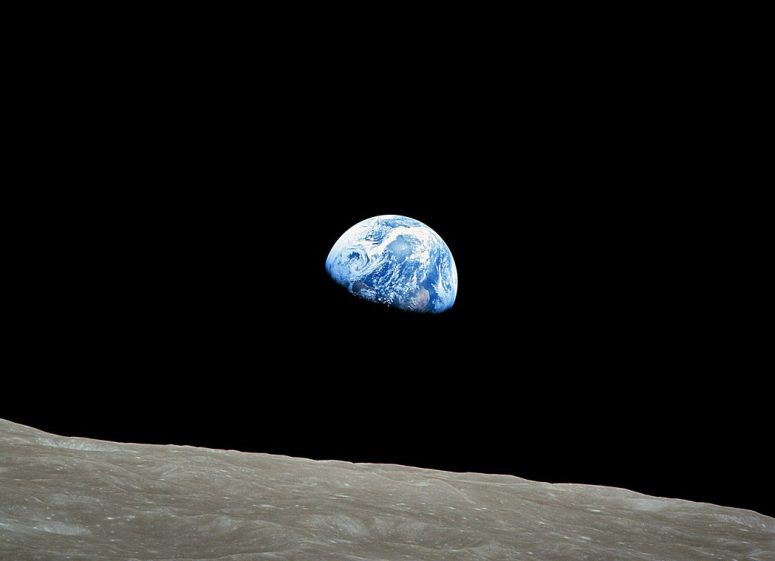
Most kids want to go to space. This is because kids are stupid, myself included.
I no longer want to go to space. Here’s why.
No amount of blackness will ever change that for me. Happy holidays!
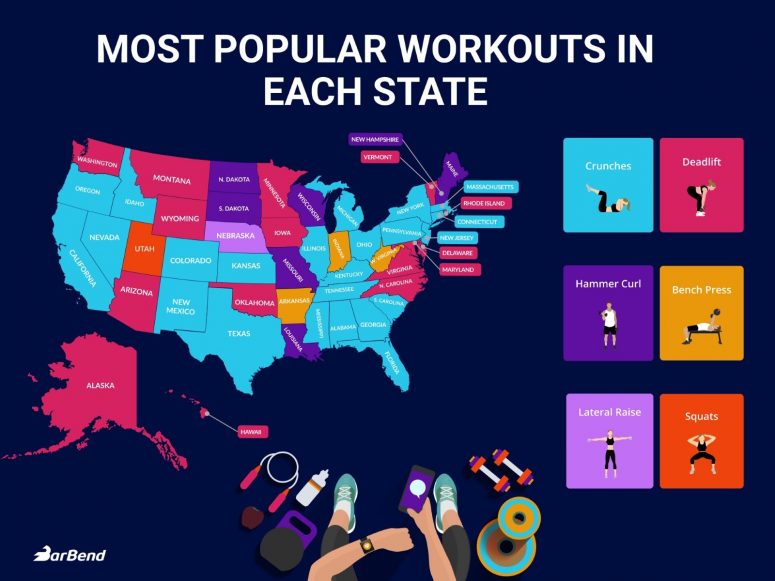
Crunches are the most popular exercise in America, according to a new study by Bar Bend. The study analyzed Google search data to uncover the most popular fitness moves in all 50 states. This is what they found:

Photo: Blake Snow
That’s Harley, the family dog. He just had his balls removed. Now he’s reduced to wearing this emasculating hat for a week to prevent post-op licking.
I think it’s funny. Harley doesn’t. But then again, he and I don’t see eye to eye on a lot of things. Continue reading…

Courtesy Yue Minjun
Over the years I’ve observed first-hand how great art often comes from the most tormented people. Musicians, movie stars, writers, entrepreneurs.
As I’ve written before, to become an icon (if not achieve worldwide greatness), you have to sacrifice just about everything else in life, which often makes said person a one-dimential, incredibly driven, and often sociopathic.
Is it possible, however, for happy, well-balanced, and/or multi-dimensional people to create great art? Joseph Berger, an artist from New York, sure thinks so.
“The perpetuation of the long suffering mythology of art is a thing which makes me unhappy,” he writes. “It is promulgated by people who have either never suffered enough to really know what suffering is, or otherwise by happy idiots who have never done a worthwhile thing in their lives, and by people who watch way to much TV or its equivalent, and buy the shopworn notion of art and artists, which predicates itself on a cultural aesthetic that is arcane at best, and insulting to the very fabric of the quality of mind that art does require. Art has nothing to do with any single emotional state of being. Art is thing that people do, just the same as feelings of all sorts are things that we each experience. And I am far more concerned about the state of mind of the person driving a car on a highway in vicinity of mine, and how their emotional state affects their driving in the moment than I am about how it affects their art.”
As a self-prescribed multi-dimentional, well-balanced, and happy artist, I sure hope so.
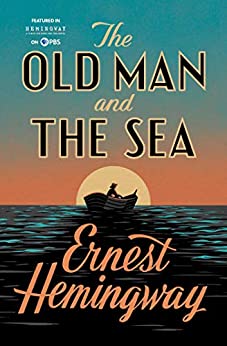 Spoiler alert: I loved it nearly as much today as I did as a teenager. The only difference is it meant a little more back then to me as this was the book that turned me onto literature and reading in general.
Spoiler alert: I loved it nearly as much today as I did as a teenager. The only difference is it meant a little more back then to me as this was the book that turned me onto literature and reading in general.
Rating: ★★★★★ These were my favorite passages this time around:
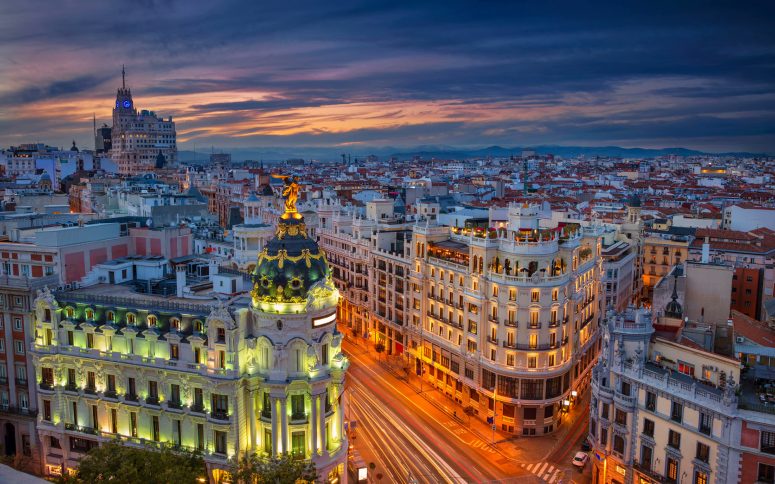
Courtesy Shutterstock
My latest for Paste Magazine: After years of traveling, not once have I heard the following: “I love Madrid!” A quick Google search confirms this consensus; the Spanish capital is notably absent from most “Europe’s best cities to visit” lists. In the two instances it was, the unassuming city barely cracked the top 40.
That’s not to say Madrid isn’t a great city. It’s rich, ornate, bright, pedestrian-friendly, and filled with some of the warmest locals and food on the continent. But not all great cities double as desirable tourist destinations.
Does Madrid? To find out, the generous folks at Land Rover recently invited me to drive their new electric Range Rovers through the city’s scenery, in between some of the top sights, and even on some outskirt off-road terrain. This is what I learned.
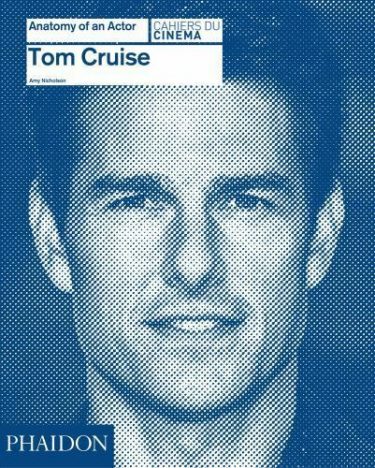 Because I think Top Gun 2 is the greatest blockbuster in a decade, I recently finished Tom Cruise: Anatomy of an Actor by Amy Nicholson.
Because I think Top Gun 2 is the greatest blockbuster in a decade, I recently finished Tom Cruise: Anatomy of an Actor by Amy Nicholson.
I was originally unsure of some of the “10 iconic roles” Nicholson chose to break down, especially from some of Cruise’s poorly rated performances. But in hindsight, I actually appreciated her critique of his weaker roles, as well as her wide-ranging coverage of most of his other roles.
In other words, no one is perfect. And sometimes critique of our misses is just as insightful and inspiriting as our hits. If you like cinema, movie stars, and/or driven people, I highly recommend this well-written and eye-pleasing hardback.
Rating: ★★★★☆
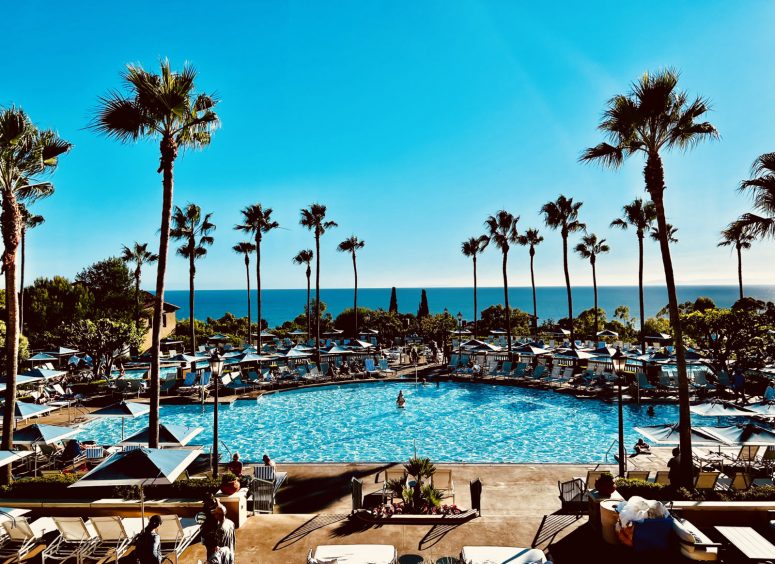
Courtesy Blake Snow
My latest for Paste Magazine: I recently read a quote that said, “I don’t want to leave vacation without knowing anything about the destination.” The implication was that travelers have some sort of moral responsibility to learn about the places they visit.
This rubbed me the wrong way. I say that as a lifelong student who usually devours foreign customs, culture, and ways of life while traveling. But sometimes you don’t want to do anything on vacation, and that’s totally okay. Sometimes you just want a break from daily routines, schedules, tasking, and commitments, and that’s wholly appropriate.
Whether you travel a lot or not, sometimes it’s refreshing to do absolutely nothing on vacation. No sightseeing. No local cooking classes. Just rest and relaxation. After a year of travel at nearly pre-pandemic levels, that’s exactly how I felt on a recent family holiday to Newport Beach, California.
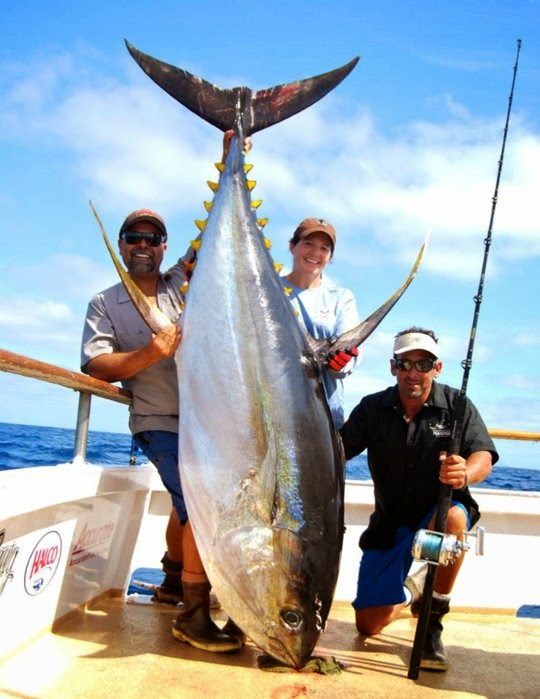
As one of the fastest fish in the sea, tuna can swim nearly 50 miles per hour. The largest species, the Atlantic bluefin, and grow as long as 15 freakin’ feet.
In short, tuna are incredible, as this captivating profile by Katherine Rundell so deftly proves: “If you land a big tuna after a six-hour fight, fight him man against fish when your muscles are nauseated with the unceasing strain, and finally bring him alongside the boat, green-blue and silver in the lazy ocean, you will be purified and be able to enter unabashed into the presence of the very elder gods, and they will make you welcome.”
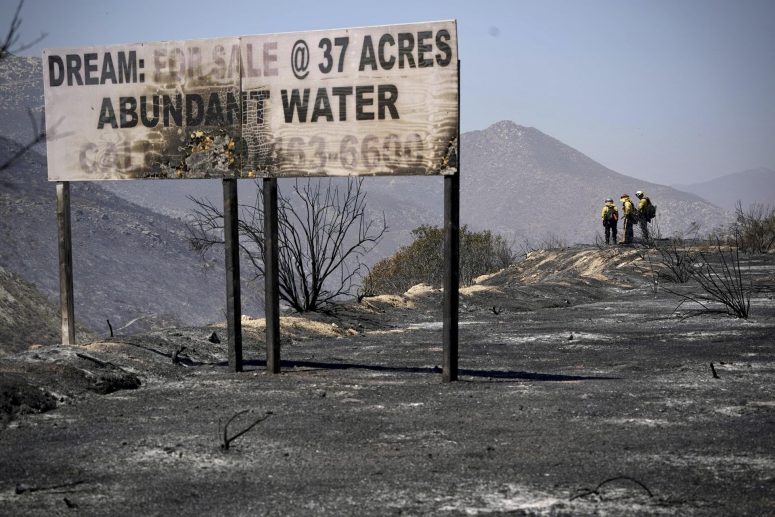
Credit: AP Photo/Gregory Bull
I’m in awe of this shot taken near Dulzura, California by AP Photographer Gregory Bull.

What happens when two Hollywood actors who know nothing about soccer buy a middling pro team in Wales? GQ’s Tom Lamont spent a season following football’s newest fans to find out. “Maybe we don’t make it all the way to the Premier League,” Reynolds allowed, “but if this club is promoted, once, twice, that’s epic, right? That’s history.” Continue reading…
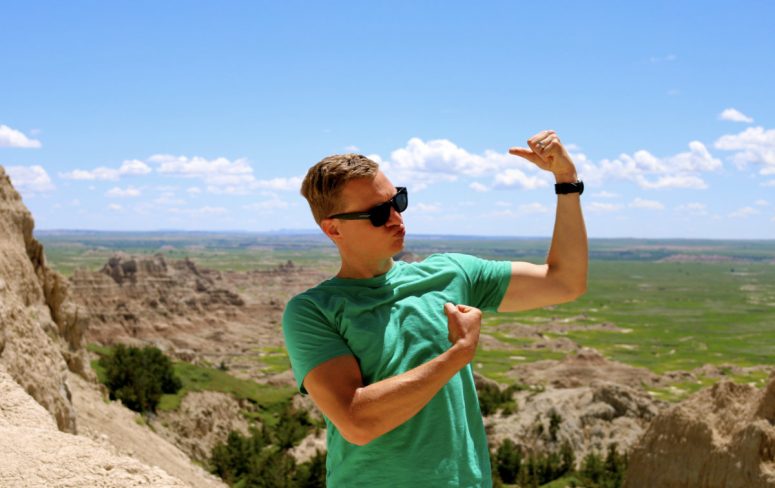
The author at Badlands National Park (courtesy Lindsey Snow)
My latest for Paste Magazine: America invented the national park when it made Yellowstone the world’s first in 1873, introducing the idea that “extraordinary” land should be protected from public development and preserved for future generations. After visiting half of the country’s 63 National Parks, it’s obvious some are better than others. A handful of recent ones (Cuyahoga Valley, Indiana Dunes) seem downright ordinary, if not political, when compared to less prestigious but clearly superior state parks like Na Pali or Custer.
With nine total, California has the most National Parks, followed by Alaska with eight, and Utah with five. In fact, the western United States is home to over 80% of National Parks, even though just a quarter of the population lives there. This explains why The Great Smoky Mountains in Tennessee welcomes the most visitors, over 14 million annually, compared to Zion’s 5 million, the second most.
Wherever you go, if you only see 20 in your lifetime, make it these icons. Continue reading…
Watch on YouTube and thanks for listening.
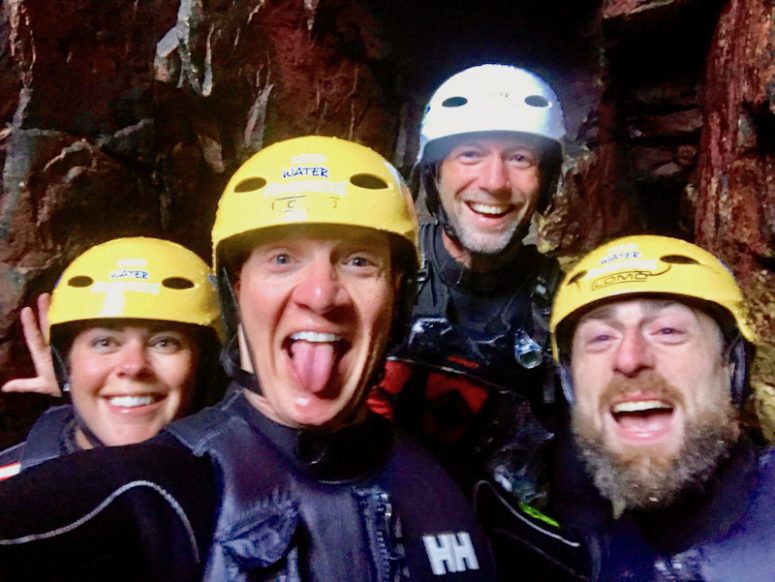
“I don’t think I’m suppose to jump into that.”
This thought came to my mind only moments before my first leap from the edge of a seaside cliff in Ireland. The fall was no more than six feet. But the swelling sea was angry, frothy, and splashing to and fro. Despite my mega-sized life vest, double wetsuit, protective gloves, and helmet, this massive tide pool surrounded by skin-cutting rock on all but one side looked like it would swallow me whole.
“Jump!” my expert guide commanded. Like many of you, I’ve been told to respect the ocean my entire life. Now some self-proclaimed authority was telling me to plunge into the worst of it. All in all, the conditions couldn’t have been any less inviting.
But like all good lemmings, I disregarded my instincts, trusted my equipment, and accepted the advice of my convincing leader. I jumped.
Kerplunk. Continue reading…